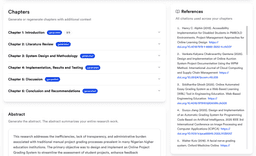Best Courses to Study in Nigeria for High-Paying Jobs (2025 Guide)
Looking for the best courses to study in Nigeria for high-paying jobs? Discover top fields like Medicine, Petroleum Engineering, Law, IT, Accounting, and more. Learn which careers pay the most, and how to improve your chances with good grades, skills, and networking.


Many students in Nigeria want to know which course of study can lead to a good job and high salary. The truth is that no course automatically makes you rich, but some fields pay better than others because of their demand in Nigeria and worldwide.
Below are some of the courses that can give you a strong chance of earning well.
1/ Medicine and Nursing
Healthcare will always be in demand. Doctors and nurses are well-paid because of the skills and dedication the profession requires. Medicine takes longer to study, but doctors often earn high salaries and have job security. Nursing also pays well, both in Nigeria and abroad, and nurses can specialize in different areas.
Job roles: Medical doctor, surgeon, pediatrician, anesthesiologist, registered nurse, nurse practitioner.
2/ Petroleum and Chemical Engineering
Nigeria depends heavily on oil and gas, and engineers in this field are well rewarded. Petroleum engineers handle drilling and exploration, while chemical engineers focus on refining, processing, and other industrial uses.
Job roles: Petroleum engineer, drilling engineer, process engineer, quality control manager.
3/ Business Administration and Management
Every company needs people who understand how to manage operations, finances, and people. Graduates in business administration or management can work across all industries. With experience, they can also become entrepreneurs.
Job roles: Business analyst, HR manager, marketing manager, entrepreneur.
4/ Law
Law is a respected course that can lead to a financially rewarding career. Lawyers can work in corporate firms, courts, or specialize in areas like intellectual property, oil and gas, or tax. The pay improves with experience and specialization.
Job roles: Lawyer, corporate counsel, judge, legal consultant.
5/ Computer Science and Information Technology
Tech careers are among the fastest growing in Nigeria. With computer science or IT, you can work in software, data, or cybersecurity. Many professionals also work remotely for international companies, which increases earning potential.
Job roles: Software developer, IT manager, data scientist, cybersecurity analyst.
6/ Civil and Electrical Engineering
As Nigeria continues to build infrastructure and expand power supply, engineers in these areas are needed. Civil engineers focus on roads, bridges, and buildings, while electrical engineers handle electricity, telecoms, and electronics.
Job roles: Civil engineer, project manager, electrical engineer, telecoms engineer.
7/ Accounting and Finance
Accountants and financial experts are in demand in both the private and public sector. With professional certifications like ICAN or ACCA, the pay is even higher.
Job roles: Auditor, chartered accountant, tax consultant, financial analyst.
8/ Architecture and Estate Management
These two fields are closely tied to Nigeria’s real estate boom. Architects design structures while estate managers handle valuation, sales, and property development. Both careers can be profitable, especially with Nigeria’s growing urban areas.
Job roles: Architect, interior designer, real estate consultant, property developer.
9/ Data Science, Statistics, and Mathematics
Data is now called the “new oil.” Companies need people who can analyze and interpret large amounts of data. If you are good with numbers, this field can open many opportunities in tech, finance, and research.
Job roles: Data scientist, statistician, business intelligence analyst, machine learning engineer.
10/ Environmental Science, Geology, and Agricultural Economics
These fields may not be as popular, but they pay well in the right industries. Environmental scientists and geologists are needed in oil, mining, and conservation. Agricultural economists focus on agribusiness and food security, which are becoming more important in Nigeria.
Job roles: Environmental consultant, geologist, sustainability manager, agribusiness analyst.
11/ Graphic Design and Public Relations
Creative fields also pay well if you are skilled. Graphic designers create visuals for brands, while PR professionals manage communication and reputation for companies. Both are in demand in today’s digital economy.
Job roles: Graphic designer, art director, PR officer, branding consultant.
12/ Microbiology and Industrial Chemistry
With more attention on health and industrial production, these courses are also rewarding. Microbiologists work in research, pharmaceuticals, and healthcare. Industrial chemists contribute to oil, cosmetics, and food production industries.
Job roles: Microbiologist, lab scientist, industrial chemist, research officer.
Important Things Students Must Know
Even though these courses are among the best for high-paying jobs in Nigeria, students should keep in mind:
- Good grades matter. Most top employers like NNPC, Dangote, or banks require at least a Second Class Upper.
- Skills are important. Learn digital or practical skills alongside your course.
- Networking helps. Many opportunities come through referrals and connections.
- Extracurricular activities count. Leadership roles and volunteering improve your CV and scholarship chances.
- Unemployment is real. A course may be good, but success still depends on effort, skills, and opportunities.
Final Note
Choosing the right course is important, but it is not the only factor. Whether you study medicine, engineering, business, or design, focus on getting good grades, building useful skills, and creating strong networks. That combination will increase your chances of landing a high-paying job in Nigeria or abroad.
FAQs on Best Courses for High-Paying Jobs in Nigeria
1. Which course pays the most in Nigeria?
Petroleum Engineering and Medicine are among the highest-paying courses in Nigeria. Graduates in these fields often work in oil companies or healthcare, both of which pay well.
2. Which science course is most profitable in Nigeria?
Medicine, Nursing, Petroleum Engineering, and Pharmacy are some of the most profitable science courses. Data Science and Computer Science are also becoming very lucrative because of the tech industry.
3. Which art course is the best for high-paying jobs?
Law is the top art course for high pay. Other profitable options are Mass Communication, Public Relations, and International Relations, depending on specialization.
4. Which business course is best in Nigeria?
Accounting, Business Administration, and Actuarial Science are strong business courses that pay well. With professional certifications, graduates in these areas can earn even more.
5. Can I get a high-paying job without studying these courses?
Yes. What matters most is the skills you have and how you use them. For example, tech skills like software development, UI/UX design, and digital marketing can pay better than traditional degrees if you are good at them.
6. Do grades matter for getting good jobs in Nigeria?
Yes. Many top companies in Nigeria, like NNPC, Dangote, and banks, require at least a Second Class Upper. Having a First Class or strong results also helps with scholarships and international opportunities.
7. Is studying abroad better than studying in Nigeria?
Studying abroad can give you more exposure and opportunities, but it is not the only way to succeed. Many Nigerians study locally, build strong skills, and still work in top-paying jobs.
8. Which course is in demand outside Nigeria?
Nursing, Medicine, Computer Science, IT, and Data Science are in high demand worldwide. These courses make it easier to work abroad after graduation.


